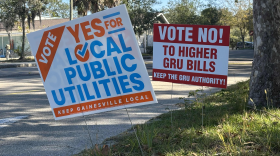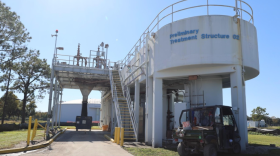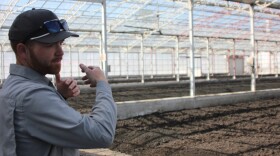-
A commercial license grants weekday access to the bay and a harvest quota up to 31 bags each.
-
Around 60 people helped plant trees at Earl P. Powers Park on Saturday as part of Alachua County’s annual celebration of Florida Arbor Day hosted by the Alachua County Arboriculture Program.
-
The most-read stories on WUFT.org during 2025, ranked by total pageviews.
-
For snook, the old rules no longer apply. The tropical gamefish are taking advantage of warmer winters brought on by climate change, forming a genetically-distinct stronghold on the Nature Coast. As their historical range shifts northward, anglers are adapting, too.
-
Known for their elusive nature and mythic proportions, tarpon never fail to entice anglers looking for a challenge. But human development and climate change are hurting the species, from the time the baby fish are just a few inches long and seeking safety in coastal ponds.
-
The Florida Museum of Natural History has published a draft of a book known as “The Butterflies of California.” When the authors first started writing it, initial estimates were that it would take about five years. Instead, it took five decades.
-
At a water treatment facility in Orlando, engineers are testing technology they hope will help solve one of the most persistent environmental problems of our time: PFAS contamination.
-
For Tampa-based COO Blake Merrell, dealing with the state’s sewage waste is both an entrepreneurial and ecclesiastical calling.
-
Residents behind a “Stop the Stink” campaign in St. Johns County argue land application of biosolids harms Florida’s housing market.
-
Rising costs of wastewater management in Florida leave questions about who will pick up the bill.
-
Janet Simoneaux, 68, retired to Lake Como in rural Putnam County before a biosolids company announced plans to dump nearby. The company backed out before trucking in any waste in what neighbors say was a rare rural victory.
-
Florida, the lightning capital of the United States, leads the nation in both the density of lightning strikes and deaths by lightning.















